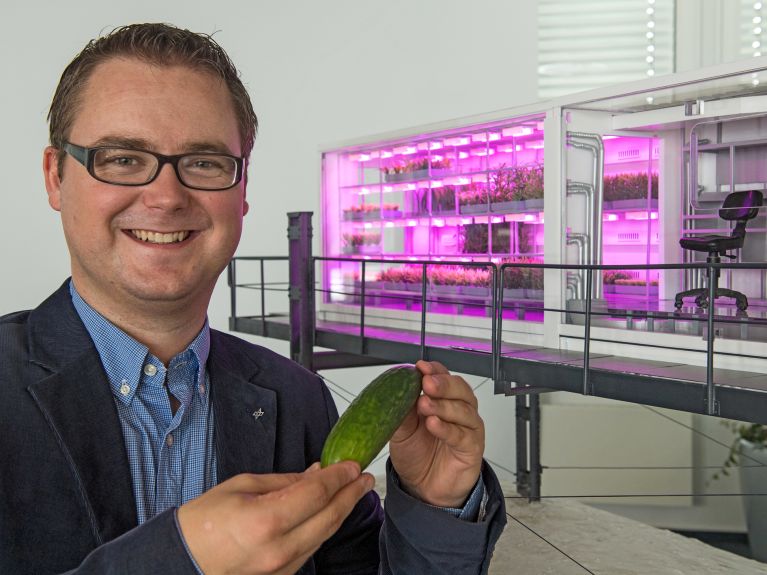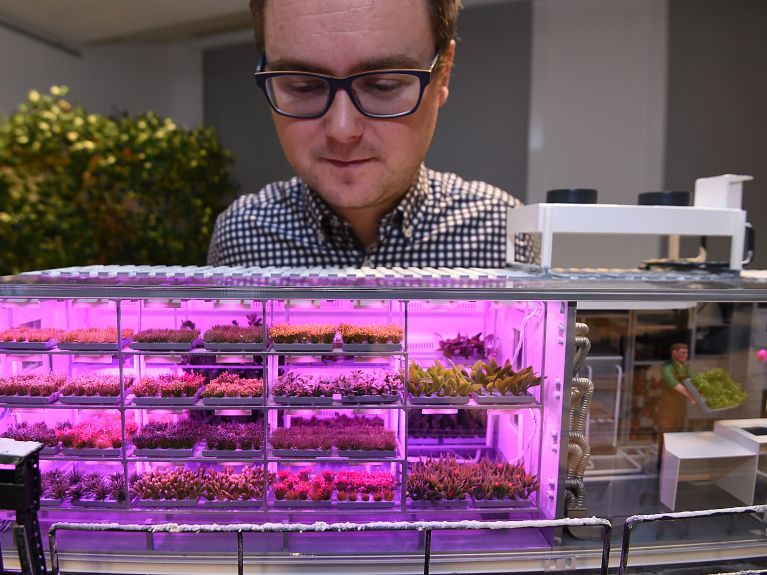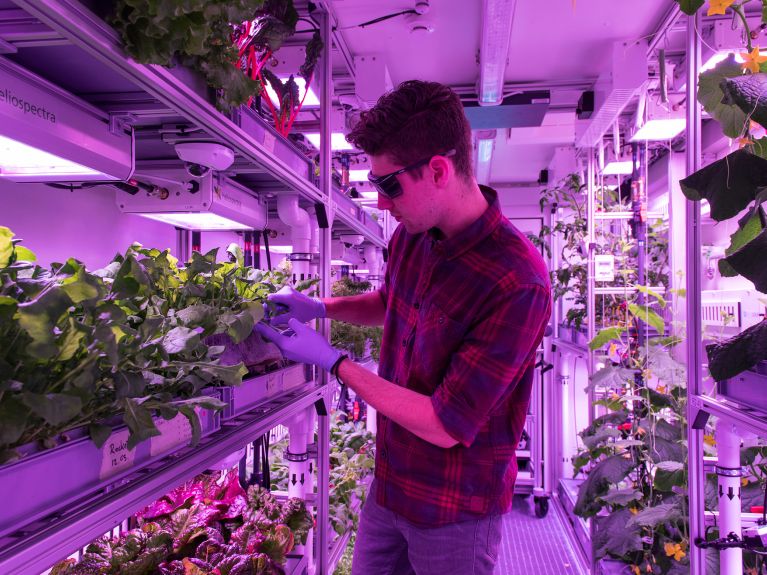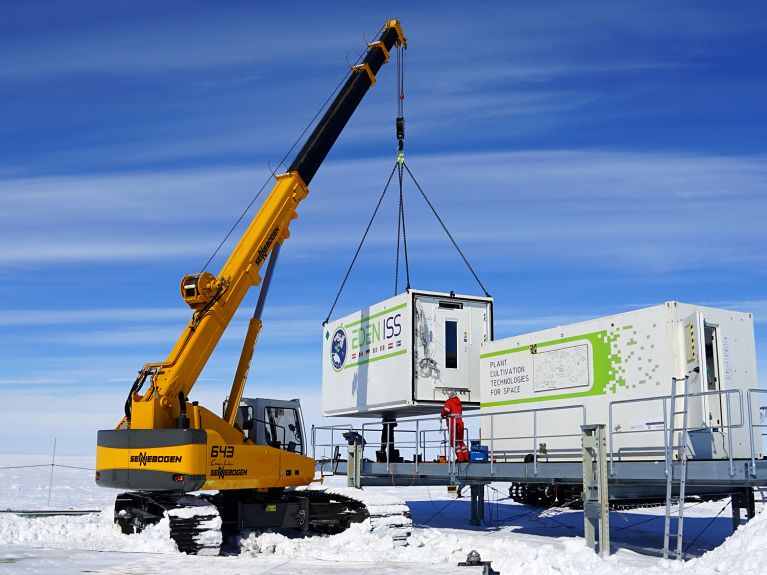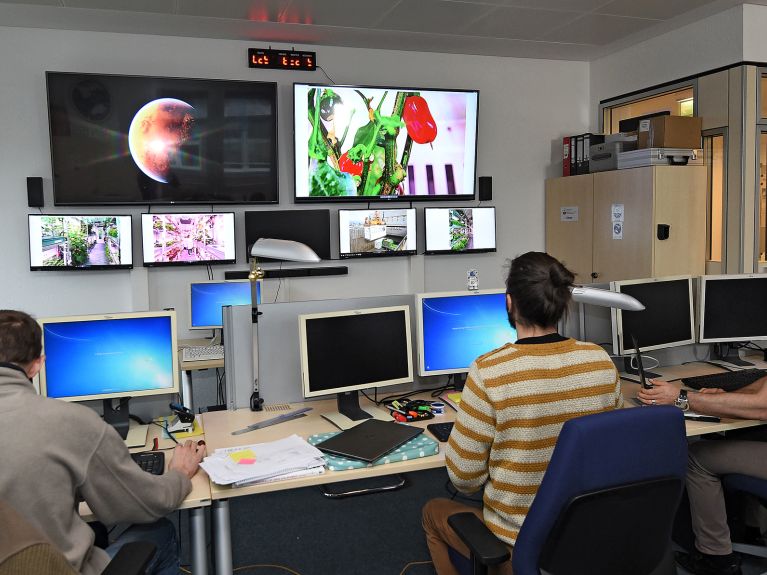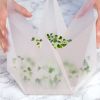Vegetables from the eternal ice
German researchers intend to grow vegetables in the Antarctic. A crazy idea? Not at all! That is what the project is all about.
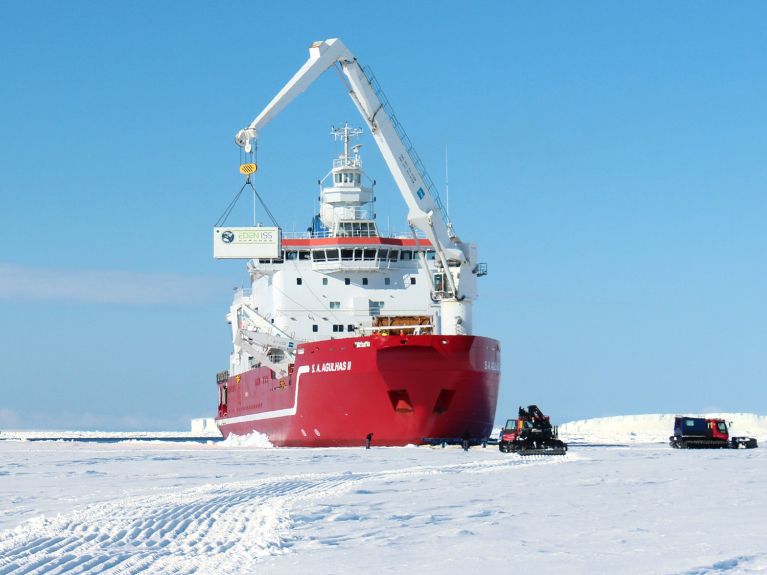
Germany. The greenhouse that cargo ships transported all the way from the docks in Hamburg to the Antarctic is not made of glass but is rather a shipping container with no windows. Since mid-January it has been standing next to the Neumayer III German Antarctic research station at 70 degrees latitude.
What purpose does the greenhouse in the Antarctic serve?
The greenhouse is the centrepiece of the Eden ISS project. Researchers are using it to test how crop plants can be cultivated in deserts and sub-zero temperature zones, as well as future manned space missions. This aeroponic greenhouse resembles a space station as well: Through an airlock the researchers gain access to a room with shimmering artificial purple light and closed air circulation. They have to hurry to install the interior fittings and technology: “If we sow the seeds on time, then in early February I hope to be able to harvest the first lettuces and radishes in late March,” says Paul Zabel from the German Aerospace Center (DLR). He is spending the winter in the Antarctic and is working on vegetable cultivation.
What is aeroponics?
Aeroponics is a method of cultivating plants without soil and sunlight – and without insecticides and pesticides. The roots are sprayed with a nutrient mixture and the leaves illuminated with LED lamps. The air is enriched with carbon dioxide, and germs and fungi filtered out.
Who is taking part in the Eden ISS?
Eden ISS is a project being conducted jointly by the German Aerospace Center (DLR) and the Alfred Wegener Institute at the Helmholtz Centre for Polar and Marine Research (AWI). Under the guidance of DLR, an international research consortium is working with partners from Ireland, Italy, Canada, the Netherlands, Austria, Sweden, and the USA. Eden ISS is being funded by the European Union’s research and innovation programme Horizon 2020.
What happens to the vegetables from the Eden ISS greenhouse?
The experiment will provide fresh vegetables for the researchers and engineers, the doctor and the chefs spending the winter on Neumayer III. “We’re interested in whether the fresh food will have a positive psychological effect,” comments Station Head Bernhard Gropp from AWI.
What’s next?
Anyone interested can follow the mission at #MadeInAntarctica on Twitter, Facebook, and Instagram.
